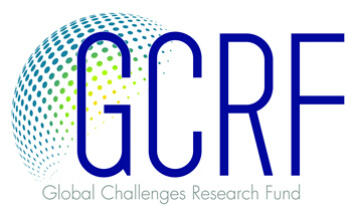
Researchers at LSTM have been awarded £6.4 million from the Global Challenges Research Fund (GCRF) to strengthen the global capacity to control vector borne diseases.
Professor Hilary Ranson, Head of LSTM’s Department of Vector Biology, will lead a team of experts working with leading research institutes and national disease control programmes in three African countries with exceptionally high burdens of disease, to develop evidence based solutions for integrated vector control.
Professor Ranson said: “Vector borne diseases affect the health of millions of people, particularly in the developing world. I am delighted to receive this award which will enable LSTM, as a centre of excellence in vector research, to assist in the capacity development within those endemic countries. I am particularly excited about working with both control programmes and research institutes to strengthen the use of evidence in national policy decisions on vector-borne disease.”
Many of the current tools for controlling the vectors of diseases like malaria, dengue, Zika and leishmaniasis are inadequate in twenty first century urban environments or failing due to insecticide resistance, while the evidence base for newer interventions remains weak. Solutions to reduce the burden of these diseases require integrated approaches. The ‘Partnership for Increasing the Impact of Vector Control’ will work with scientists and disease control programmes in Burkina Faso, Cameroon and Malawi to identify national research priorities and address the acute shortage of vector biologists in these countries. Supported by long term mentorship from LSTM and rigorous evaluation of the capacity needs in-country, the Partnership will generate new knowledge and tools, and strengthen national decision-making leading to reduced disease burden and increased resilience for responding to outbreaks.
“As well as training scientists of the future,” continued Professor Ranson, “the Partnership will conduct research, invest in facilities and bring together different disciplines into advisory groups that can help governments plan sustainable action against these diseases.”
LSTM’s Capacity Research Unit (CRU) will be providing expertise within this award and are also involved in two other successful bids to the GCRF Collective Fund:
- HORN – One Health Regional Network for the Horn of Africa – led by the University of Liverpool and in collaboration with institutions in the Horn of Africa (Kenya, Ethiopia, Eritrea, Somalia)
- Strengthening Capacity in Environmental Physics, Hydrology and Statistics for Conservation Agriculture Research – led by the British Geological Survey, in collaboration with institutions in Zimbabwe, Zambia & Malawi
All three will see the CRU working with partner institutions to strengthen the research capacity of African partners, looking at capacity at individual and institutional level, as well as the environmental context in which the institutions operate.
The GCRF Collective Fund offered awards between £2 and £8 million over four years with the aim to grow the research base in the UK and strengthen capacity overseas, to address research challenges informed by the expressed needs of developing countries.